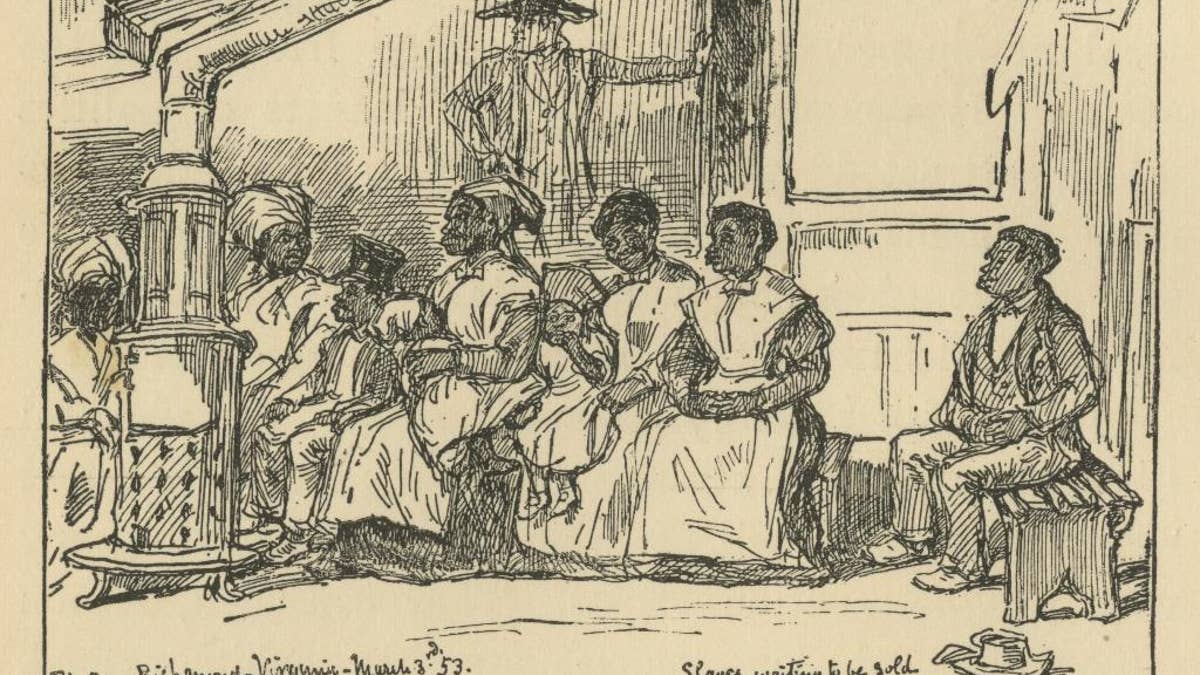MSNBC host Joy Reid: ‘You can't even say slavery was bad now in the Republican Party’
‘The ReidOut’ host criticized the GOP for not speaking out against Florida Governor Ron DeSantis after he took a swipe at Rep. Byron Donalds, R-Fla.
Neille Wade is a Jamaican woman of African descent who lives at the root of my family’s known family tree. Based on the time of her birth and death and Jamaica’s bitter history of enslavement and colonialism, it is more than likely that Wade represents one of my only known relatives whose body was owned by the cruel institution of slavery.
As one of the cornerstones of the Western Hemisphere's extensive economic growth and societal development, this cruel, brutal and unusual four-century-long institution’s place in history does not require much nuance or shades of gray in its understanding.
In the past year, we as a nation have regrettably witnessed an uptick in school boards, state legislatures and influencers pushing a re-telling of American and West Hemispheric history that would call into question the brutality of enslavement and advancement of 17th-century African society and culture, all while creating delusions about the enslaved experience in Western Hemisphere and beyond.

A depiction of the Richmond slave market by Eyre Crowe, who visited the city’s slave-trading center in 1853. (AP Photo/Library of Virginia)
The Florida State Board of Education recently issued its new standards as part of a new African American history curriculum for grades 6-12. It included controversial language about how "slaves developed skills which, in some instances, could be applied for their benefit."
TIM SCOTT HITS DESANTIS ON FLORIDA CURRICULUM: ‘NO SILVER LINING IN SLAVERY’
During our nation’s founding, the wickedness of slavery was known throughout the chambers of Independence Hall. Even so, our Founding Fathers chose to keep the bitter and "peculiar institution" alive, intentionally omitting the actual word from the Constitution.
In Article 1, Section 2 of the Constitution, the founders defined White early Americans as "free people" and the enslaved as "three-fifths of all other persons." Additionally, Article 1, Section 9 extended the international slave trade to 1808 and codified the power of the U.S. Treasury to collect taxes and duties on the backs of the enslaved.
These two references to enslavement make it clear that the bitter institution only benefited the enslavers who put the system in place.
Unlike many other Americans, finding Neille Wade and learning her story was no easy feat, and I am a pretty good researcher, if I say so myself.
My dear third great-grandmother’s story remains a mystery that lives at the heart of slavery’s brutality. Unlike other genocidal acts committed with intent to destroy, in whole or in part, a national, ethnic, racial or religious group, the enslavement of Africans in the Americas lasted for centuries. During the horrifying Middle Passage, it is likely that Neille’s third great-grandparents were chained alongside individuals who didn’t speak their language, nor originate from their village.
KAMALA HARRIS ACCUSED OF ‘SICK’ LIE ABOUT FLORIDA'S BLACK HISTORY CURRICULUM: ‘GASLIGHTING’ VOTERS
The only connection those unwilling seafaring passengers maintained was a new identity called "Blackness" and the fear of the unknown.
None of the enslavers, plantation owners or politicians of the day took the time to learn the names of these enslaved Africans, understand their language or connect with their humanity. They only sought one skill among the human cargo aboard the ships leaving the West Coast of Africa: the ability to grow certain crops in tropical and subtropical environments.
In places like the Caribbean and the lower 13 colonies, European settlers insisted on moving from subsistence to mass production. To make that a reality, they needed the skills of Africans hailing from rice-growing regions of West Africa.
These West African rice growers had cutting-edge sowing skills, irrigation technologies and processing techniques that they used in their well-developed societies. That’s why Europeans stole them and their knowledge.
In the 1640s, Virginia Gov. William Berkeley consulted enslaved Africans when experimenting with rice. Sadly, no recognition was ever given to them or their ancestors for developing the staple crops in the Americas.
CLICK HERE FOR MORE FOX NEWS OPINION
This revelation and other truths about enslavement and the advancement of West Africa stand in clear contrast to the false re-writing of history that is currently taking place. Here is the truth: enslavement was not a free trade school where one could apply to be a blacksmith, a shoemaker or a farmer. It was an institution that treated human beings as sub-human (or, in the words of the Constitution, three-fifths human) property with no self-determination over their own life.
Beyond just making them sub-human, the institution of slavery wiped away these brave souls’ history, stripped them of their language, erased their religion and separated them from their home – a technologically advanced place rich with resources and seeped in culture.
That was the tip of the iceberg; enslavement in the Americas was 400 years of compounded racism that came with brutality, abuse, rape, captivity and so much more.
CLICK HERE TO GET THE FOX NEWS APP
As my family and I continue to search for more on Neille Wade’s story, the truth of her shackles and the pain of her ancestors should and must remain at the center of how we tell the history of the Americas.
If we choose to forget, the chances of us repeating or allowing someone else to do the same are all too real.





